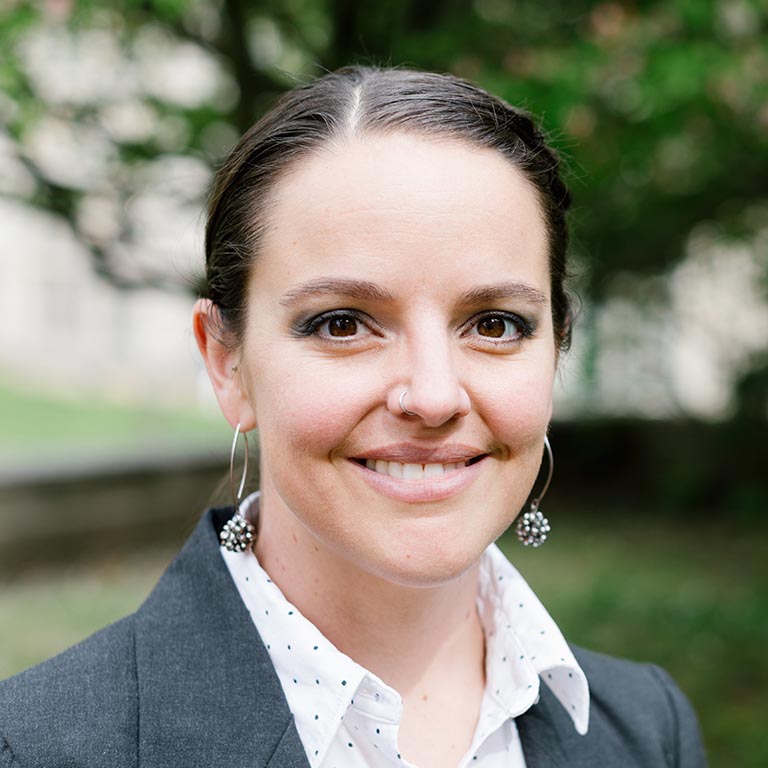About Sarah Imhoff
I am broadly interested in religion and the body. My research asks questions about how bodies and their attributes, such as gender, race, and ability, shaped and are shaped by religion. Underwriting many of my research projects are questions about how embodiment makes religious meaning, and how religious discourse makes bodies.
My first book, Masculinity and the Making of American Judaism, argues that American Jewish men in the early twentieth century were gendered differently from American norms, and that this masculinity helped acculturated Jews argue for the value of an American Judaism.
My second book, The Lives of Jessie Sampter: Queer, Disabled, Zionist, explores the life and thought of Jessie Sampter, an early twentieth-century American Zionist. But Sampter’s own life and body hardly matched typical Zionist ideals: while Zionism celebrated the strong and healthy body, Sampter spoke of herself as “crippled” from polio and plagued by weakness and sickness her whole life; while Zionism applauded reproductive (women’s) bodies, Sampter never married or bore children—in fact, she wrote of homoerotic longings and had same-sex relationships we would consider queer. Ultimately, the book argues, Sampter’s distinctive life illuminates something more general about the human condition: our lives often to not fit seamlessly with our religious or political ideologies.
My third book, co-authored with Susannah Heschel, analyzes the place of women and gender in Jewish Studies. The Woman Question in Jewish Studies combines the stories of women and non-binary scholars in Jewish Studies, quantitative data about scholars and scholarship in the field including bibliometric analysis, and historical analysis of three origin stories of Jewish Studies. It asks: what is distinctive about Jewish Studies, and what does it share with other academic disciplines when it comes to gender?
I have also written about the meaning of Jewishness in contemporary American contexts. I am especially interested in the ways that race, DNA, and medical knowledge shape what it means to be Jewish—or even who is a Jew—today.
My current research project is a hemispheric history of Judaism in the Americas, bringing together the stories of Latin America and the Caribbean with those of North America.
My work has appeared in the Journal of Religion, Religion and American Culture, American Jewish History, Religious Studies Review, Jewish Social Studies, and other academic journals and edited volumes.
I am also founding co-editor of the journal American Religion.

 The College of Arts
The College of Arts